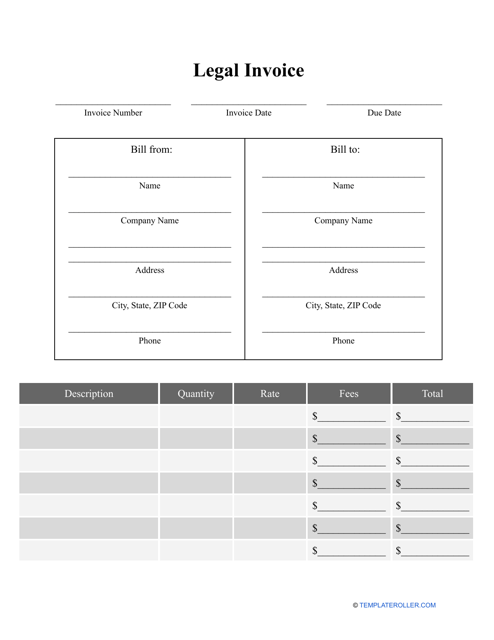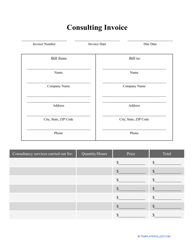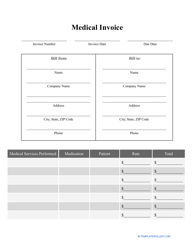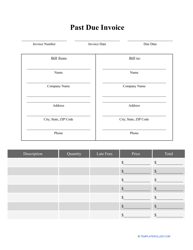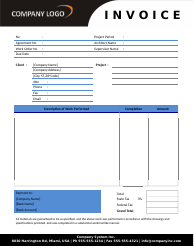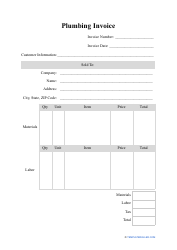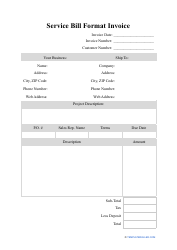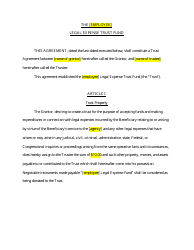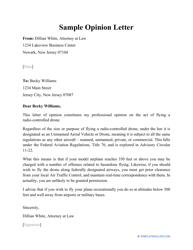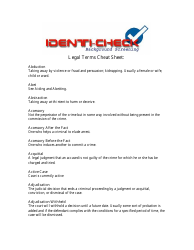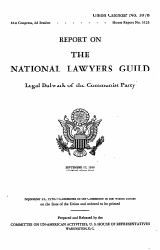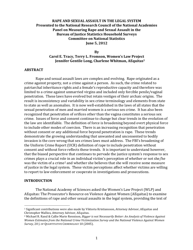Legal Invoice Template
What Is a Legal Invoice?
A Legal Invoice is issued to a customer detailing any provided legal services. This invoice for legal services would be given by the legal representative (such as a lawyer) who keeps track of the hours spent working on a particular case when representing their client.
The invoice should contain information concerning all services that were provided to the customer. This detailed, broken-down list will make the customer less likely to question it and express their dissatisfaction. This is because everything is clearly written down and calculated which means that the paying customer knows exactly what services they have received and what specifically they are paying for. By producing invoices, the legal professional ensures that they (in most cases) will be paid promptly, and if there are any delayed payments, the legal professional can easily track them down and chase them up thanks to the invoice.
A Legal Invoice template can be downloaded by clicking the link below.
What Makes an Invoice Legal?
The only thing that makes an invoice legal is the structure and components of the invoice. These Legal Invoice requirements must be followed carefully otherwise they could be classed as invalid. Invoices could be a useful document if there is a dispute with a client or in situations when a client has refused payment. By producing this invoice, you have a greater chance of winning a legal battle. However, if the invoice you produce in court is not formed correctly, it will be discarded. For this reason, we have compiled a list of our top things to include in an invoice:
- The name of the legal professional offering legal help to the individual along with their personal details. These details can include their full name, a working address, the name of the company as well as their telephone number;
- Provide details about the customer including their name and contact details (including telephone number and mailing address for correspondence);
- Input a detailed list of all provided services and a short description of each along with the time spent and costs associated for each service;
- Include the overall subtotal that needs to be paid and the accepted methods of payment, not forgetting to include the deadline date for making the payment which also needs to be reflected in the document;
- The document should be signed and dated by both parties.
How to Make a Legal Invoice?
Making your own Legal Invoice is simpler than you may first think. The first thing we would recommend is to find and download an editable template by browsing through some of our Legal Invoice templates. This will already contain all of the crucial information using the correct language and the appropriate structure. You would need to consider:
- The first thing you want to do is ensure that your invoice looks the part and reflects the nature of your business. Consider customizing it by using company colors and a company logo;
- State the name of the document "INVOICE" to make sure that it is obvious what the document is, followed by a unique invoice number allocated to each specific invoice;
- Provide information about the company including the name, address, and contact telephone numbers;
- Provide a complete list of all of the services provided, the quantity (or hours) as well as the price per quantity and the price taking into account the quantity;
- Clearly state the final subtotal that you expect the client to pay. Take into account any discounts, deposits, or free consultation;
- Make sure you add the date that the invoice was produced and sent out, the dates of all services and the due date;
- Include conditions relating to payments and any consequences that the individual may face if payments are missed.
Still looking for a particular template? Take a look at the related templates below:
